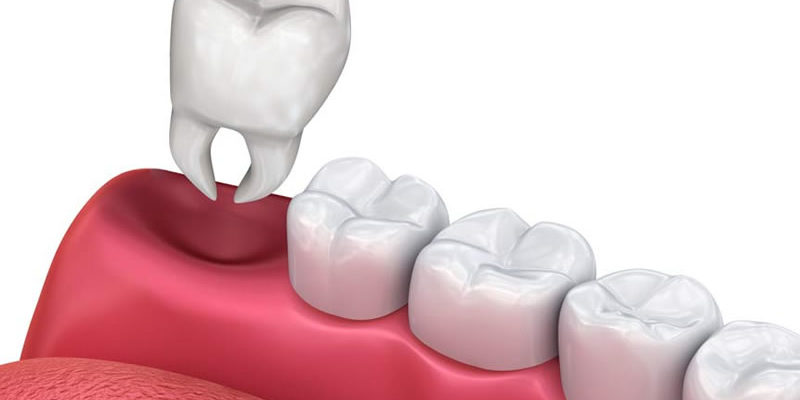All About Tooth Extractions (Including Whether They Hurt)
The very notion of undergoing a tooth extraction in St. Albert is understandably stressful and something most people would rather avoid. You might be surprised to hear it, but dentists agree! Dentists will do and recommend anything possible to avoid extracting a tooth, but there are situations in which extraction is the best and only reasonable option to ensure your health.
Are all tooth extractions the same?
The precise process that your dentist in St. Albert will follow to pull a tooth depends on whether the tooth to be pulled is intact (or broken) and visible (or still beneath your gums). While each extraction procedure varies from one to the next, they do fall into two categories: Simple extractions and surgical extractions.
A surgical teeth extraction in St. Albert is performed in complex situations, such as when the tooth has broken beneath your gums, has fractured into more than one piece, or is impacted beneath your gums (such as unerupted wisdom teeth).
Surgical extractions involve many more steps than simple extractions, including incisions into your gums to expose the roots of teeth and the bone of your jaw; removal of bone and/or gum tissue to enable access to the tooth; sectioning (reducing the tooth into smaller fragments) of the tooth; and extraction. If necessary, your dentist in St. Albert will close up your gums with self-dissolving stitches and will ensure that a clot has developed in the extraction site to ensure infection-free recovery. The dentist and staff at a dental clinic near you will give you detailed instructions about how to maintain that clot throughout your recovery process to avoid the development of a painful potential complication called dry socket.
Will getting your tooth pulled hurt?
Whether you undergo a simple or surgical extraction, the procedure itself will be painless. (There will be some post-extraction discomfort, but we’ll come to that.)
All tooth extractions in St. Albert are performed after your dentist has applied a local anesthetic to the area of the extraction. That local anesthetic will completely numb the gums near the site of the extraction and eliminate any feeling of pain or any sharpness.
If you suffer from dental anxiety or phobia that
poses a barrier to getting essential dental treatment such as extractions, ask
your dentist about sedation dentistry options. Sedation dentistry in
combination with anesthetics can be especially helpful for particularly
vulnerable patients or people undergoing more complex procedures.
How to manage post-extraction discomfort
While the extraction process itself will be pain-free — which is not to say you won’t sense pressure, movement, vibrations or sounds unless the procedure is performed under sedation — you should anticipate some discomfort during your recovery period. Here are several simple tips to follow to minimize discomfort as you recover while minimizing the risk of developing complications:
● Use cold compresses and ice to reduce swelling
● Use over the counter pain medications if necessary, but always follow directions
● Minimize your physical effort and exertion during the recovery period
● Don’t use straws or spit during recovery; both activities produce suction that can dislodge your clot
● Don’t smoke or drink alcohol during recovery; both activities delay your body’s normal healing processes. Smoking also produces suction that can dislodge your clot
● Eat only soft, bland and lukewarm foods until your dentist advises otherwise. It’ll be boring for a while, but it’s the best way to protect the sensitive tissues around your extraction site during recovery
● Don’t neglect your oral hygiene during your recovery. Keep brushing and flossing, but avoid your extraction site until your dentist tells you otherwise




Comments
Post a Comment